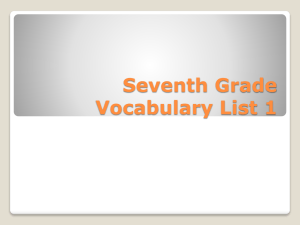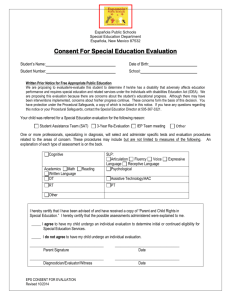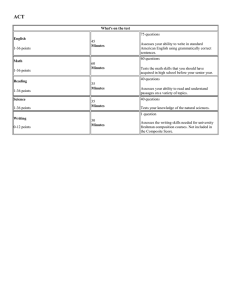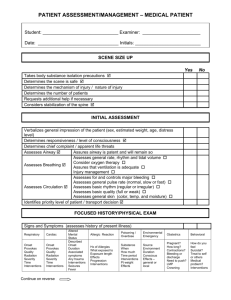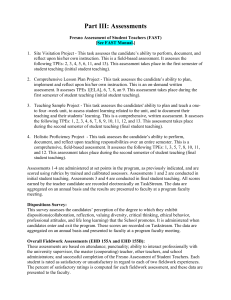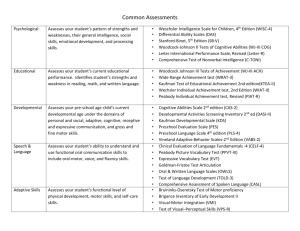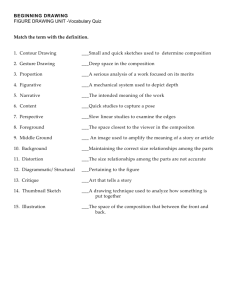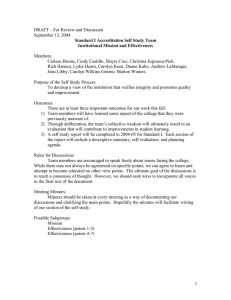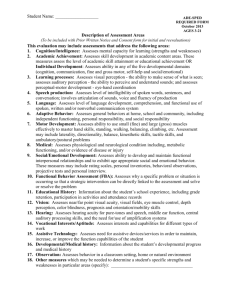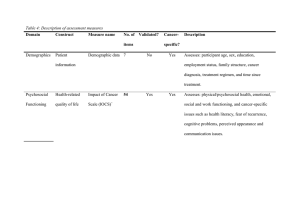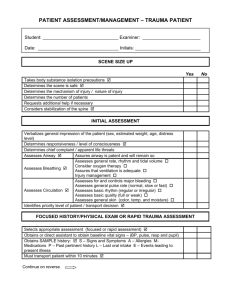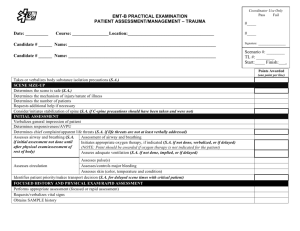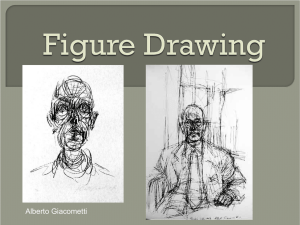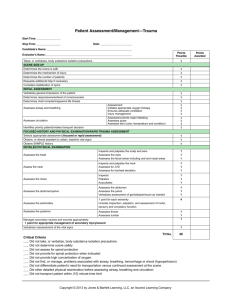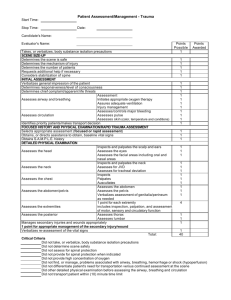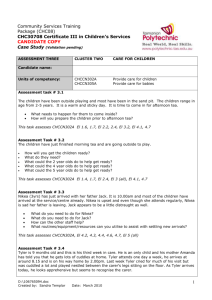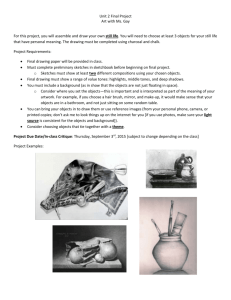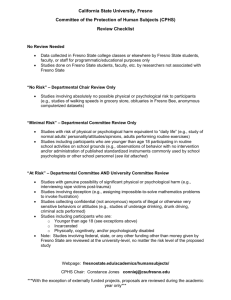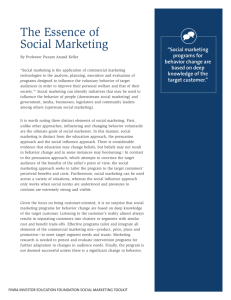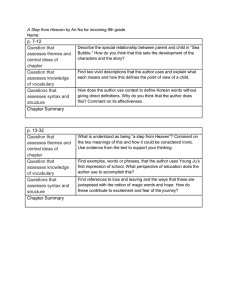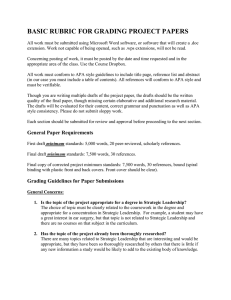Grade 9 Integrated Science Course
advertisement
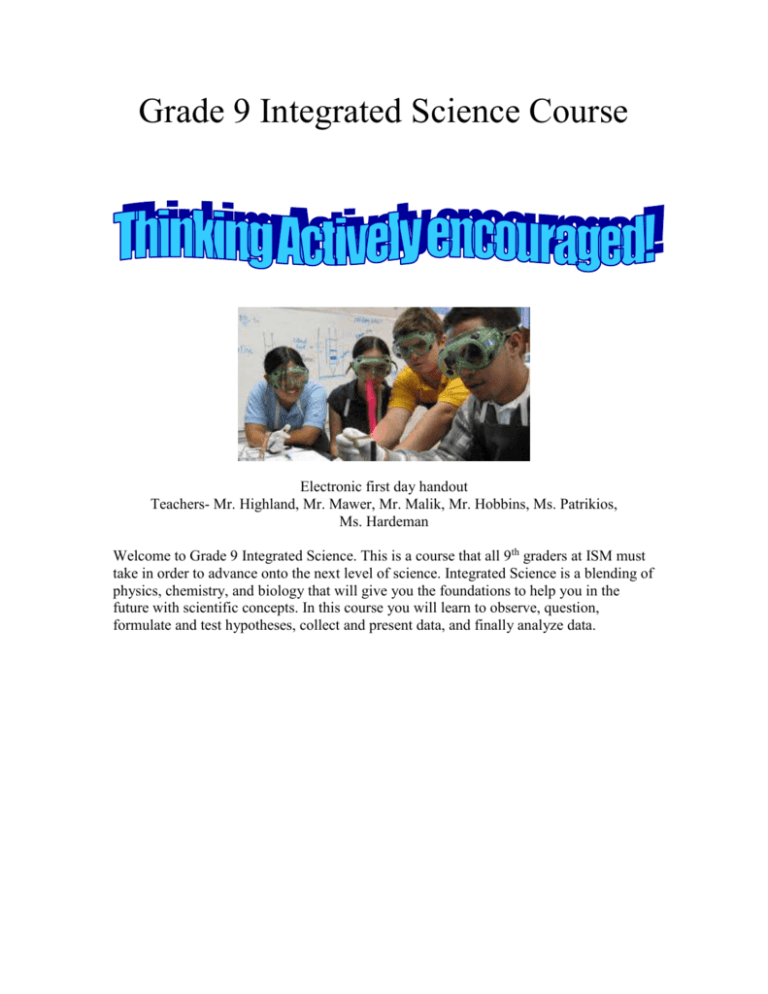
Grade 9 Integrated Science Course Electronic first day handout Teachers- Mr. Highland, Mr. Mawer, Mr. Malik, Mr. Hobbins, Ms. Patrikios, Ms. Hardeman Welcome to Grade 9 Integrated Science. This is a course that all 9th graders at ISM must take in order to advance onto the next level of science. Integrated Science is a blending of physics, chemistry, and biology that will give you the foundations to help you in the future with scientific concepts. In this course you will learn to observe, question, formulate and test hypotheses, collect and present data, and finally analyze data. Equipment Expectations You will need to bring the following to EVERY class: Pens (+spares) Pencil (Sharp) Clear plastic 30cm ruler Science Binder with paper/notebook Eraser Calculator Hair band (if you have long hair) When you come into a science lab you must be safe so You MUST wear closed toed shoes that are held to your heel, if you don’t you might cut, scald or burn your feet and you won’t be able to do labs. Work Expectations You are here to find things out- the more effort you put in the more you will find out! You will find it helps if you are always: Punctual, Polite, Prepared Attentive Awake and Alert Safe Respectful (to each other and your teachers) Responsible It is your responsibility to keep up with work and do homework. If you are absent because of IASAS, sickness etc. you are expected to find out what you missed and catch up. We run tutorial sessions …… Use them! The major topics covered in the Integrated Science course in grade 9 are:Scientific Method Energy Structures Waves If you continue with this course in year 10 you will cover the following topics:Charges Oceans Systems 21st Century Science Assessment Do NOT ask for extra credit, it is damaging to your health! Category Knowledge Factors in assessment Recall Application and Problem solving Understanding Examples of assessment Weight Grade 9 Assessment Categories Descriptor Quizzes 25% Tests and Performance tasks 25% This category assesses the student’s ability to recall facts, structures, names, definitions and other foundational information necessary for understanding and applying the scientific principles of this course. This category assesses the student’s ability to apply knowledge, concepts, formulae and techniques in new contexts. Students will solve problems by building models, designing experiments, extracting evidence from data, evaluating data, and drawing conclusions. This category assesses the student’s ability to: 1) continually become more ethical, balanced, self-directed, responsible, caring, and creative by: a) setting goals; b) planning work; c) implementing work; d) reflecting upon work; and e) modifying goals and strategies. 2) communicate understanding in multiple ways such as: drawing, writing, speaking, dramatizing, animating, poster-making, PowerPointing, PodCasting. 3) Use Laboratory equipment competently, accurately and safely. 4) Works well as a member of a team. This category assesses the student’s ability to: 1) collect sufficient relevant raw data; 2) record appropriate quantitative and qualitative raw data, including units and uncertainties where relevant; 3) process quantitative raw data correctly; 4) present processed data appropriately. 5) develop research questions and design experiments 6) draw valid conclusions 7) evaluation procedures and results TransDisciplinarySkill Research Communication Personal management and reflection Connection and Collaboration Critical thinking Safety in a lab, posters, presentations, Manipulating equipment accurately, Performance tasks 25% Lab Reporting Identifying variables, hypothesizing, Designing experiments, Making tables, processing the data, using data to create graphs Drawing conclusions Evaluating Lab reports 25%
